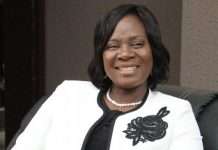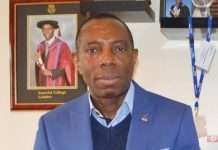“The struggle to make life easier and better for the less privileged and the inaccessible still continues.” – Dr Seyi Oyesola
Access to qualitative and affordable healthcare is a major challenge to many people living in Africa. Especially for those in the rural areas, where poverty and lack of basic amenities are endemic, inadequate access to basic medical care, much less surgical interventions, is a major challenge and a cause of many preventable deaths.
It is for these reasons that concerned individuals and well-meaning organisations are devising innovative solutions to meet the specific needs of these disadvantaged populace. One of such transformative innovations is the CompactOR (Compact Operating Room) commonly referred to as “hospital-in-a-box”, developed by the Nigerian Dr Seyi Oyesola and the British Alexander Bushell.
CompactOR is a solar-powered portable operating theatre, fully fitted with all the tools necessary for emergency healthcare delivery, including defibrillators, EKG monitoring machine, an anaesthetic machine, and surgical lighting. It serves as a life-saving operating room which can be quickly transported and deployed within minutes to remote areas, lacking access to surgical facilities.
Dr Oyesola’s invention of the CompactOR was born out of the desire to improve the challenging work conditions of African medical professionals. Designed specifically to address the challenges of inadequate surgical equipment and electricity in the African healthcare system, the portability and versatility of CompactOR makes its carriage and usage in critical situations second to none. It can be powered through standard means, but also by a solar panel, a car’s 12 volt plug, or a foot pedal.
Moreover, CompactOR can be customised for oral surgeries, such as the removal of wisdom teeth or used for routine operations to remove cataracts, gall bladders, or appendices. It has been used successfully for hysterectomies and even heart surgeries. The maintenance cost of the hospital-in-a-box is very affordable, compared to other standard set surgical equipment in the market. Also, some of its maintenance does not require the service of skilled technicians, as it can be repaired by the doctors using it themselves. The award-winning invention was launched in 2007 and is now in use in many rural areas in Africa.
Education and career
Dr Seyi Oyesola was born in Nigeria, but spent much of his childhood growing up in Ohio, USA. After graduating from high school in Cleveland, Ohio, in 1975, he returned to Nigeria and obtained his Bachelors of Science Degree and, in 1986, his Medical Degree from the University of Lagos. He practised briefly in Nigeria, before moving to the United Kingdom for his specialised training in anesthesiology and critical care.
Dr Oyesola’s experience while working as an intern in Nigeria after graduating from medical school marked a turning point in his career as he soon discovered the limitations and challenges doctors like himself go through in their quest to save lives.
During his stay in the UK, Dr Oyesola was appointed consultant at Medway Maritime Hospital. He also taught at the Imperial College School of Medicine, in 2001. He is currently the chief medical director of Delta State University Teaching Hospital (DELSUTH) in Nigeria. Commissioned in 2010, DELSUTH is a world-class facility. Its medical staff made history when they performed the first successful kidney transplant at the facility in 2014.
Rewarding partnership
Dr Oyesola’s experiences in Nigeria were akin to Engineer Bushell’s experiences in rural Kenya: emergencies that could have been handled readily were not, due to a lack of access to basic equipment. Many people suffer and die from common ailments and injuries (such as burns, trauma and heart attacks) because the basic medical equipment were unavailable.
Dr. Oyesola’s desire to address the aforementioned challenges of the healthcare system in Africa inspired him to establish a company called Practice Ventures in 1996. Practice Ventures develops and supplies some of the best high-tech medical equipment and training to African hospitals.
To ensure that more low-income Nigerian families have access to affordable and quality medical care, Dr Oyesola embarked on hospital visitations in Nigeria’s rural areas to identify the challenges hospitals face in order to proffer solutions. He soon realised that many healthcare facilities lacked the basic equipment required for simple surgical procedures and, where available, they were either obsolete or non-functioning and non-repairable. He then set out to find a way surgical care could be quickly transported and assembled to these areas with emergency cases.
Dr Oyebola’s findings led him, in 2005, to team up with Alexander Bushell to develop the mobile operating room now known as CompactOR. According to Dr Oyebola, “In serving a cause greater than self, a team is able to produce results in a way that the whole is greater than the sum of the parts.”
In recognition of his brilliant Invention, Dr Oyesola was invited to give a TED Global talk in 2007. He used the platform to explain the challenging work conditions that African medical professionals face. He also noted that although basic medical care at hospitals is not as ‘popular’ with overseas donors as anti-malaria projects or HIV/AIDS interventions, there is much to be done in this area of healthcare in Africa.
Dr Oyesola is a member of the Association of Anesthetists of Great Britain and Ireland, Royal Society of medicine, Intensive Care Society UK, and Royal College of Surgeons (Anaesthesia) Ireland. He continues to be involved in medical education, simulation and medical device development. He is happily married with children.
















